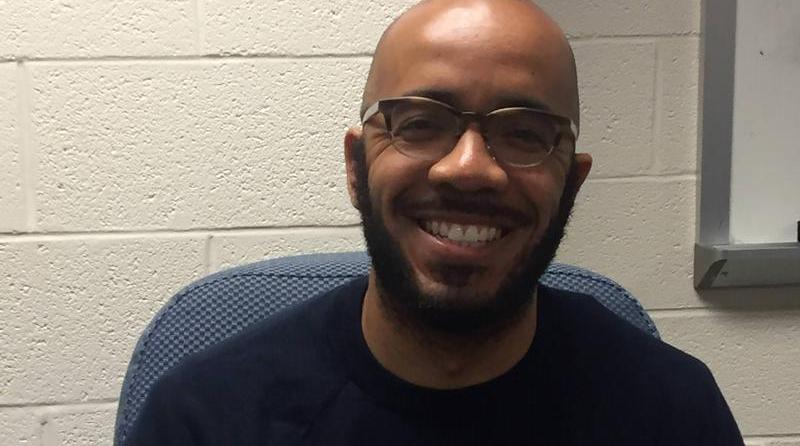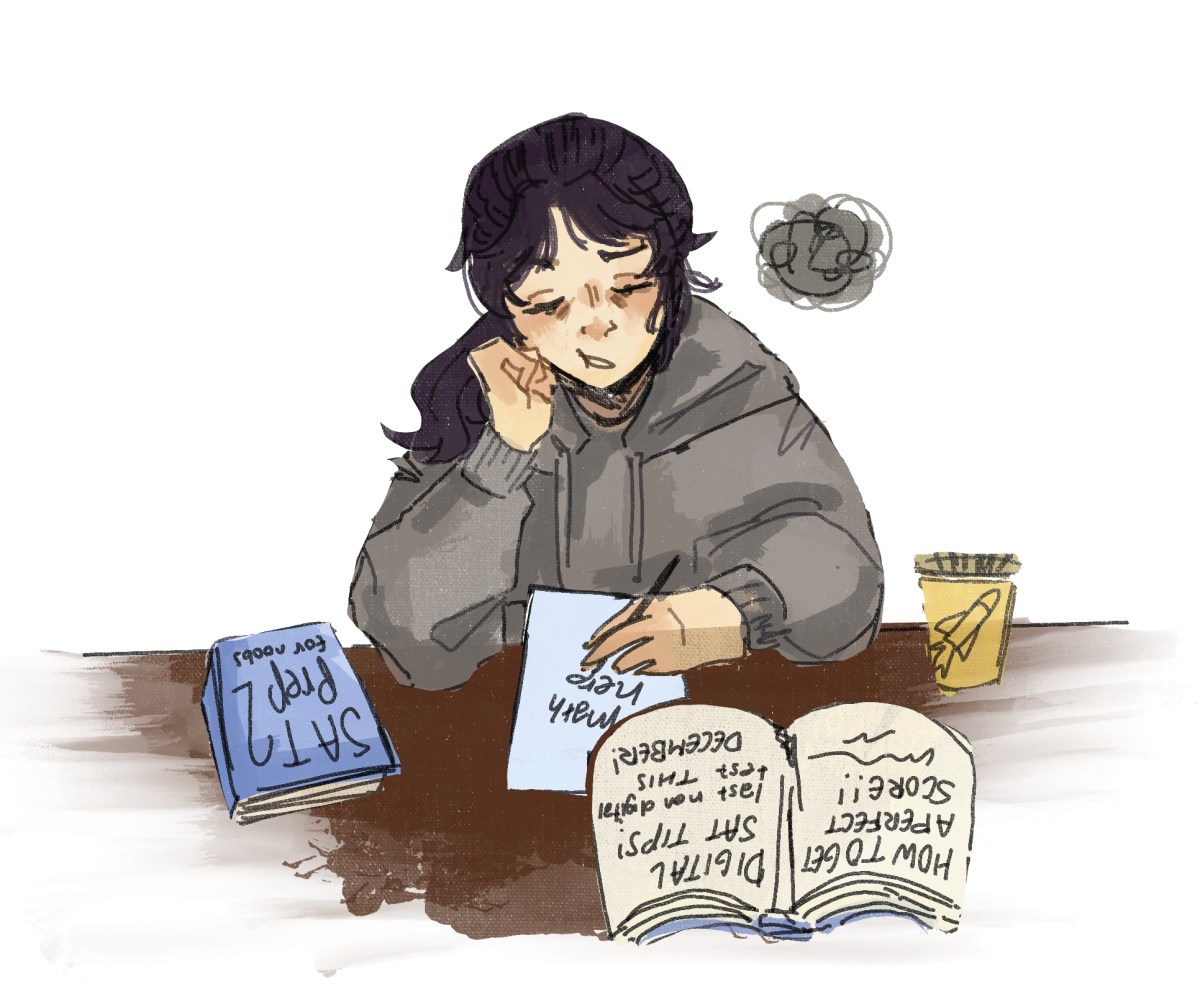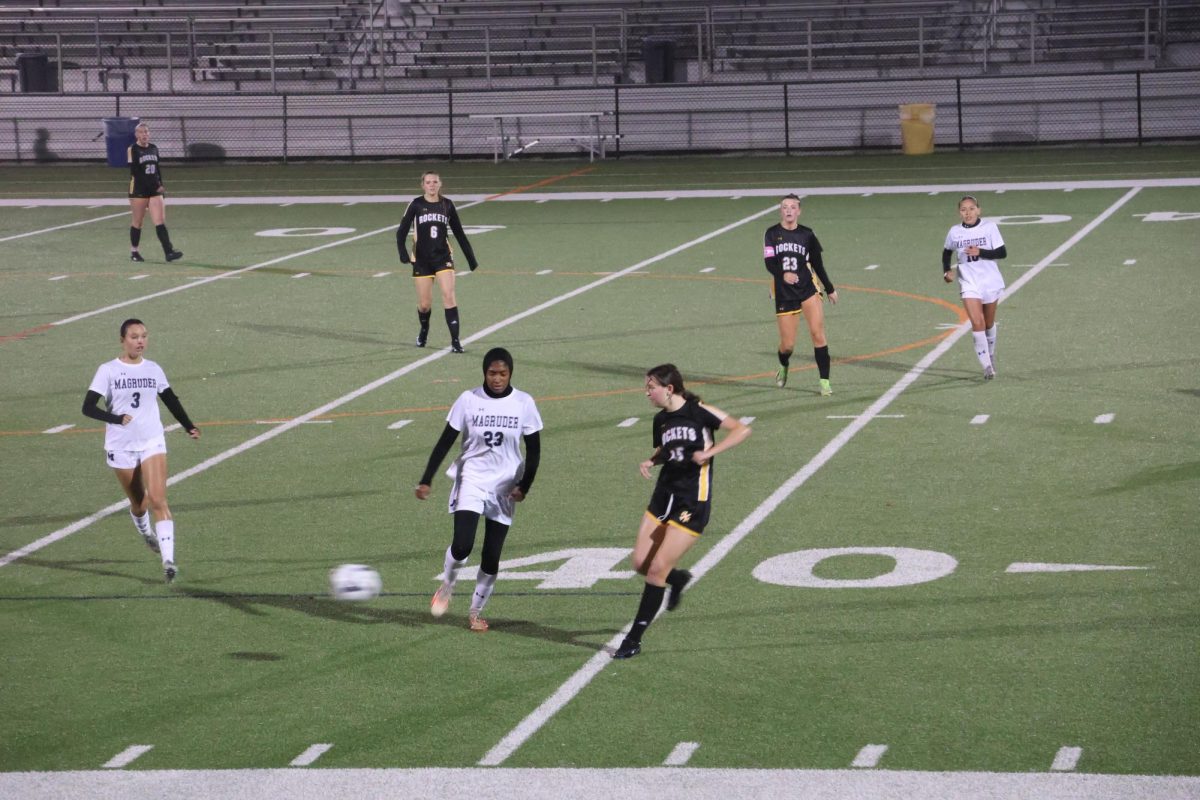Clint Smith, a well known poet, writer, and scholar, held a meaningful conversation about race, history, and identity with RM juniors on April 20. Smith encouraged students to snap their fingers or say “sheesus” to express agreement with the poems he recited, which kept the audience engaged during the assembly. His poetry touched the hearts of many juniors, for it arose from a lifetime’s worth of experience, self-awareness, and honesty.
Smith was first introduced to poetry as a child, and one of his earlier poems, written during a fifth grade field trip to the woods, is as follows: “An animal is a thing that lives and breathes, we must not mess with its needs / If we do we’ll pay the price / With a future world, not so nice.”
Although his love for poetry continued for years, Smith did not act upon his passion until a poem he heard at the Nuyorican Poetry Cafe about having cerebral palsy completely changed his perception about an entire demographic of people in the span of 3 minutes. Smith then realized the power of poetry and worked tirelessly to hone his craft.
His efforts paid off, for he is now a 2014 National Poetry Slam Champion as well as a 2017 recipient of American Poetry Review’s Jerome J. Shestake Prize. Many of Smith’s poems discuss current race relations in America, and this is no coincidence.
“I come from a long tradition of black writers who have always recognized that their art cannot be disentangled from the social condition of their lives or their community’s lives. You should write about the world as you see it, and if the people that you love and the people you live around are experiencing injustice then that deserves to be written about,” Smith explained.
The renowned poet’s dedication to using art as a form of social commentary is seen in “Place Matters,” a poem that Smith wrote while he taught high school English in Prince George’s County, Maryland. “Place Matters” addresses how a multitude of socio-economic factors put his young students at an automatic disadvantage in life. Despite the obstacles they face, Smith remains hopeful that his former students will rise above their obstacles and change America for the better.
His favorite aspect of teaching was giving young people information that made them reassess the world they live in. According to Smith, whenever he speaks at high schools he tries to talk about the things that he really wanted to discuss as a high schooler. Smith aims to give people a larger portfolio of information with which to make decisions about how they understand the world, and he accomplished this in a multitude of ways for RM students.
On April 13, juniors from different English classes came together and read Smith’s book Counting Descent. In addition to reading his poems, they talked to one another about their personal reaction to his poems as well as any insights they may have had.
“In reading the Clint Smith poems I noted personally that I’ve never really experienced the feelings present in the collection, which gave me a perspective of someone who is learning to empathize with those feelings,” said an RM junior.
The act of uniting people through shared experiences is one of the things Smith hopes his poetry accomplishes.
“I think that that’s what art at its best will do, right, is take a personal experience and will be read and interpreted in this sort of universal way,” Smith said. “My hope is that people will read the book and whether you’re Black or Asian or White or rich or poor or what have you, that you see something in there that speaks to you.”
Ms. Nancy Shay, RM’s IB Coordinator, read Smith’s Counting Descent and immediately knew that she wanted many students to share the experience of reading it as well. Thus, she worked closely with English teachers Mr. Bayer and Ms. Wilson to coordinate the discussions about Counting Descent during junior English classes as well as inviting Mr. Smith to speak to all the juniors in the auditorium on April 20.
“What I think is so amazing about him is that he’s so smart and he’s so relatable. I have never heard anyone who can speak in complete paragraphs quite the way that man does. Not only do I love his poetry, but I also just love listening to him speak,” Ms. Shay said.
Ms. Shay was not the only one who loved listening to Smith speak, for the large number of snaps and sheesus’s uttered reflected how many eleventh graders agreed with the harsh truths Smith discussed through his poetry.
The assembly conducted by Smith was very successful in that it shed light on the difficulties facing African Americans in the United States today and fostered a discussion among the juniors that led to more understanding, compassion, and unity.
Featured photo by Robyn Fohouo


















